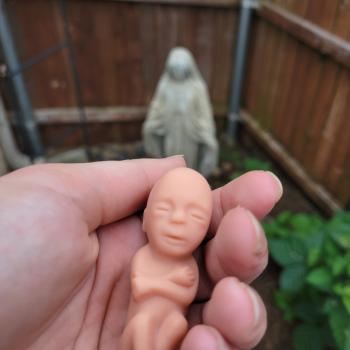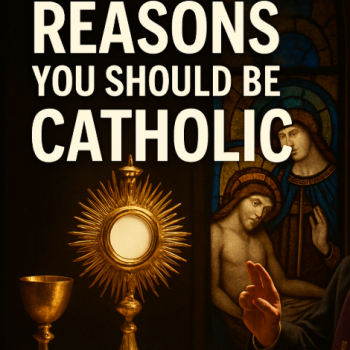Guest writer: Eric Luppold.
In the Fifth Commandment, God requires us to honor our fathers and mothers. While this commandment directly speaks to the family relationship, it sets the foundation for all authority structures within society. This is seen in Israel’s case-laws, such as when the people are prohibited from cursing or reviling one of their rulers (Exodus 22:28). We also observe this when Moses instituted a hierarchical structure of judges over the people of Israel (Exodus 18:24-26).
The Nature of Authority
Now, while the secular world recognizes only human authority, with Caesar (i.e., the State) usually at the top, Christians recognize the existence of both divine and human authority. Yet these two types of authority are not utterly divorced from each other but have an organic relationship. For example, human civil authority is ordained and instituted by God (Romans 13:1). Civil leaders, therefore, have authority because God has given it to them. That authority is bounded and limited by what God has authorized them to do. The authority is divine in the sense that it originates from God, but it has been delegated to humans. That is why a civil magistrate is an instrument (i.e., servant) who bears the sword as “an avenger who carries out God’s wrath on the wrongdoer” (Romans 13:4).
Aside from the civil magistrate, God has instituted two other authority structures: the family and the church. Each has been given its own instructions, and each wields a divine authority that has been delegated to it. Fathers are to bring up their children “in the discipline and instruction of the Lord” (Ephesians 6:2), which includes the provision of education, health, and welfare. As for the church, it is to be led by shepherds/pastors who “equip the saints for the work of the ministry” (Ephesians 4:12). This includes proclaiming the gospel, administering baptism and the Lord’s Supper, and exercising church discipline (i.e., utilizing the keys of Matthew 16).
To Obey or Disobey?
At this point, there are two questions we need to ask. First, how do we know when a human authority is properly using its divinely-delegated authority? Second, what do we do when a human authority is not obeying God and is misusing its authority? While Catholics and Protestants typically spend most of their time talking about church authority, I would argue that the answers to those questions apply to all three human authority structures that God has instituted: the family, the church, and the state.
For example, how do we know when a husband/father is not wielding his authority properly? If we appeal to the civil magistrate, we are assuming that the civil magistrate is right and holds the final say. If we appeal to the church, we run into the same problem. And, of course, husbands and fathers have existed prior to the creation of either the church or the civil magistrate and yet were still held to a standard of behavior.
Does this mean that, today, the civil magistrate and the church have no authority at all over a husband/father? Not at all. Those institutions now exist and bear a delegated authority from God. But they also are under the authority of God. If they wield their authority properly, then they ought to be obeyed. But when they deviate, they ought to be corrected and, if necessary, disobeyed.
Military Authority
Consider the example of the military. As an officer in the Air Force, I swore an oath when I first joined back in 2006. That oath involved the following statement:
I solemnly swear that I will support and defend the Constitution of the United States against all enemies, foreign and domestic.
While those words seem innocuous enough, there is much that is contained in them. For starters, the final human authority over me is not really a human at all, but a document (i.e., the Constitution). Later in the oath I state that I will “faithfully discharge the duties of the office.” Now most of those duties are determined by my commanding officers, all the way up to the President of the United States. Does this mean that I must always follow every order that I am given? Not necessarily. Per Article 90 of the Uniform Code of Military Justice, military members are only obligated to obey “lawful” orders.
What is Lawful or Unlawful?
But the question then becomes, who gets to decide what is lawful or unlawful? If my commander orders me to kill civilians, or execute captured enemy prisoners of war, should I obey? Well, the military structure recognizes a chain of command in which appeals can be made to higher authorities. Yet, at the same time, even the highest human authority – the President – cannot violate the Constitution. And so, if military members are given orders directly from the President that violate the Constitution, those military members are obligated to disobey.
At this point, someone might declare that such a system can only result in anarchy. For how could a military officer know that he is reading and interpreting the Constitution correctly when he decides to disobey a direct order? The Constitution is not always clear, and the original writers are not with us to answer any questions we might have. It therefore would be silly, and irresponsible, to swear an oath to support and defend a piece of paper and to be allowed to decide whether an order goes against what that piece of paper says.
This argument regarding the Constitution parallels that of the argument regarding Scripture. But there is a significant difference: Scripture is far superior to the Constitution, being the very words of God. And so, we come to the age-old question that Catholics and Protestants debate: What is the relationship between Church and Scripture?
Ultimate Authorities
To begin, while the Constitution serves as the final authority for civil life among Americans, Scripture serves as the final authority for faith and life among God’s people. If it is the case that the family, church, and state receive delegated authority from God, they require instruction to know what they are supposed to be doing and how they are supposed to do it. While a sense of those instructions can be gleaned from God’s created order (i.e., General Revelation), the full and complete expression of those instructions is found in the word of God (i.e., Special Revelation). The result is that the family, church, and state receive their marching orders from God through his word and are held accountable to it.
This brings us back to the two earlier questions: How do we know when an authority, like the church, is disobeying God, and what do we do when that happens? The answer is that God’s word contains within itself all that is necessary for the Christian life. This is the very nature of God’s word. Consider the words of a father to his children. The voice and words of a father carry authority by the very nature of who he is to them. When he speaks, he speaks with authority because of the fact that he is their father.
The Authority of the Word of God
Similarly, the words of God bear authority because of what they are. They do not require some additional stamp of approval in order for them to be granted or given authority. Rather, their authority ought to be recognized as authoritative because of their very nature. This is, in fact, what the Apostle Paul highlights in 1 Thessalonians 2:13:
And we also thank God constantly for this, that when you received the word of God, which you heard from us, you accepted it not as the word of men but as what it really is, the word of God, which is at work in you believers.
Does this mean that the church, including councils, creeds, and confessions, has no purpose and bears no authority? Not at all. The church has been given its instructions in Scripture and is to function according to those instructions. And just as a father might summarize the Christian faith in a short catechism for his children to memorize, the church is free to summarize the Christian faith in various confessions and creeds for believers. In either case, the authority of both the father and the church remains a delegated/derived authority and is to be obeyed only insofar as it conforms to the higher divine authority. In order words, a father is obligated to accurately teach his children. The church is obligated to do the same for its members by “rightly handling the word of truth” (2 Timothy 2:15).
Did God Really Say?
But this brings us to a couple of key questions: Are there not parts of Scripture that are difficult to understand (2 Peter 3:16)? And, on top of that, who gets to decide when someone is misunderstanding the text?
Regarding the first question, there are indeed difficult parts of Scripture. But Peter says in that very same verse that “the ignorant and unstable twist to their own destruction, as they do the other Scriptures.” The ultimate issue, therefore, is not the difficulty of the text but the ignorance and instability of the reader.
To put it differently, if someone wanted to twist the word of God, they could do so. We see this clearly in the temptation of Jesus, where Satan quotes Psalm 91 in an attempt to get Jesus to doubt the Father’s protection. When Jesus responds by quoting Deuteronomy 6, are we to believe that an impasse has been reached? If Scripture can be used against Scripture ad infinitum, will that not lead to a never-ending cycle that cannot be resolved or reconciled? Not at all.
The Role of the Holy Spirit
As mentioned earlier, God’s word bears divine authority by its very nature (i.e., its ontology). It is the means by which the Holy Spirit works on the hearts of God’s people, being “living and active, sharper than any two-edged sword” (Hebrews 4:12). Being reflective of God’s character and nature, the word of God is consistent with itself and with God’s creation. That is, there is no contradiction either within God’s word or between God’s word and what we see in the world.
Furthermore, since God is the one who has made man’s mouth (Exodus 4:11), he is fully capable of communicating clearly and effectively to those who are made in his image. The cause, therefore, behind disagreements over God’s word is not due to a weakness in the word, but in man. The Holy Spirit, therefore, must regenerate man’s heart and open man’s eyes so that he will stop twisting Scripture and instead submit to Scripture. God’s word has an inherent meaning and authority. The question is whether man will submit to that authority and seek to understand that meaning.
Resolving Disagreements
This leads us to answer the next part concerning how to resolve disagreements. At the end of the day, both individual man (you and I) and collective man (the church) are under the authority of God’s word. When the individual deviates from God’s word, the collective should correct him. And when the collective deviates from God’s word, individuals should correct it. We see examples of both in Scripture, one of which being in Mark 7, where Jesus uses Scripture to correct the Pharisees’ practice of the Corban rule, a man-made tradition that had been allegedly passed down from Moses (Mark 7:1-12). Another example can be found in Acts 18:26, where Apollos was corrected by Priscilla and Aquila, who “explained to him the way of God more accurately.”
Conclusion
At the end of the day, God’s people will recognize God’s word because of what it is by its very nature. Jesus himself articulates this in John 10:27 when he declares “my sheep hear my voice, and I know them, and they follow me.” This is not an empty platitude. Those who truly belong to Christ will, by the work of the Holy Spirit, hear his voice and follow him. This includes those who hold positions of authority within the church. And any earthly shepherd that seeks to lead the sheep ought to submit himself to the voice of that Heavenly Shepherd.
Thank you!
Read The Latin Right’s other writing here.
Please visit my Facebook page and IM your questions (and follow my page) or topics for articles you would like covered.
Also, please subscribe my YouTube page for updates on upcoming articles.
Eric’s sites:














